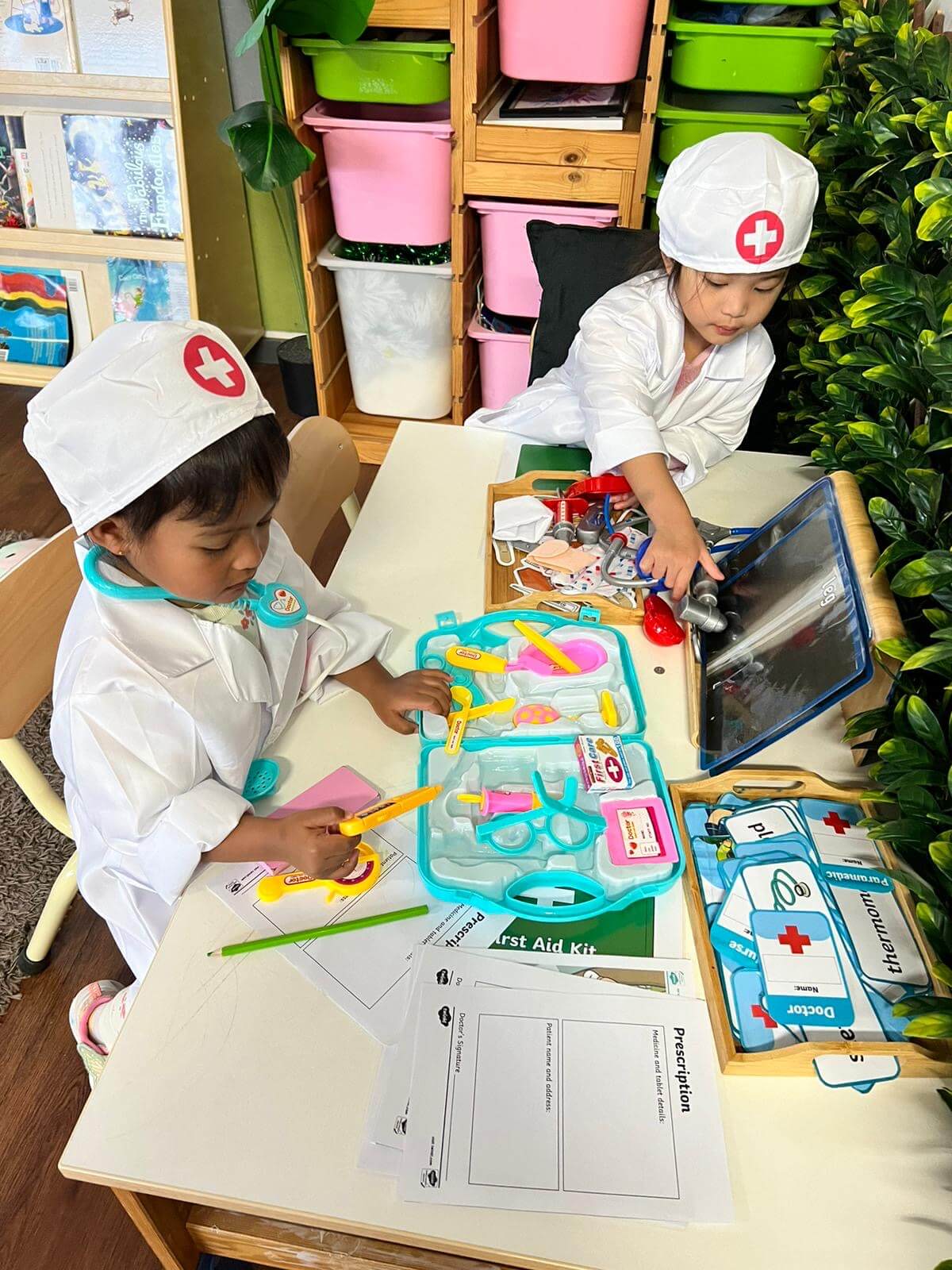Play is often viewed as a simple activity that children engage in for fun, but its significance in early childhood development goes far beyond mere entertainment. At Green Kids Early Learning, we recognize play as a crucial component of a child’s growth and well-being. Let’s explore why play is so essential and how it contributes to a child’s holistic development.
- Cognitive Development:
Play is the foundation of cognitive development in young children. When children engage in activities like building blocks, pretend play, or puzzles, they are actively experimenting, problem-solving, and learning to think creatively. These experiences help them develop essential cognitive skills such as memory, language acquisition, and spatial awareness. For instance, a child stacking blocks is not just arranging shapes but also understanding concepts like balance and stability.
- Social and Emotional Development:
Through play, children learn valuable social skills such as cooperation, negotiation, and empathy. Whether playing with peers or adults, they practice taking turns, sharing toys, and expressing their feelings. Play also allows children to explore different roles and scenarios, which enhances their emotional development by fostering resilience, self-regulation, and confidence. For example, in a dramatic play scenario, a child may take on the role of a caregiver, which helps them understand others’ perspectives and emotions.
- Physical Development:
Active play is crucial for developing gross and fine motor skills. Activities like running, jumping, climbing, and drawing with crayons help children strengthen muscles, improve coordination, and develop dexterity. Outdoor play, in particular, allows children to experience different sensory stimuli and promotes overall physical well-being. For instance, swinging on monkey bars not only builds arm strength but also enhances spatial awareness and balance.
- Imagination and Creativity:
Play is the ultimate breeding ground for imagination and creativity. When children engage in imaginative play, such as pretending to be superheroes or creating fantastical worlds with toys, they are exercising their creativity and expanding their imaginations. This ability to think outside the box and envision new possibilities is crucial for problem-solving and innovation later in life.
- Language Development:
Play provides numerous opportunities for language acquisition and development. Whether children are engaged in storytelling, singing songs, or engaging in conversation during play, they are learning new words, sentence structures, and communication skills. Playful interactions with peers and adults also help children develop listening skills and learn the nuances of language.
Encouraging Play at Green Kids Early Learning:
At Green Kids Early Learning, we understand the profound impact of play on child development. Our curriculum is designed to incorporate diverse and enriching play experiences that support all areas of development. From sensory play stations to dramatic play areas, each activity is carefully crafted to nurture curiosity, creativity, and social interaction among children.
By providing a supportive environment where play is valued and encouraged, we empower children to explore, discover, and learn in meaningful ways. Through play, children not only develop essential skills but also cultivate a lifelong love for learning and exploration. At Green Kids Early Learning, we are committed to fostering a foundation of growth, joy, and discovery through the power of play.
Join us in celebrating the importance of play in early childhood development, and witness firsthand the incredible journey of growth and discovery that unfolds every day at Green Kids Early Learning. Together, let’s nurture young minds and inspire a future filled with endless possibilities.
Discover more about our approach to early childhood education and the power of play by visiting Green Kids Early Learning today. Let’s play, learn, and grow together!
